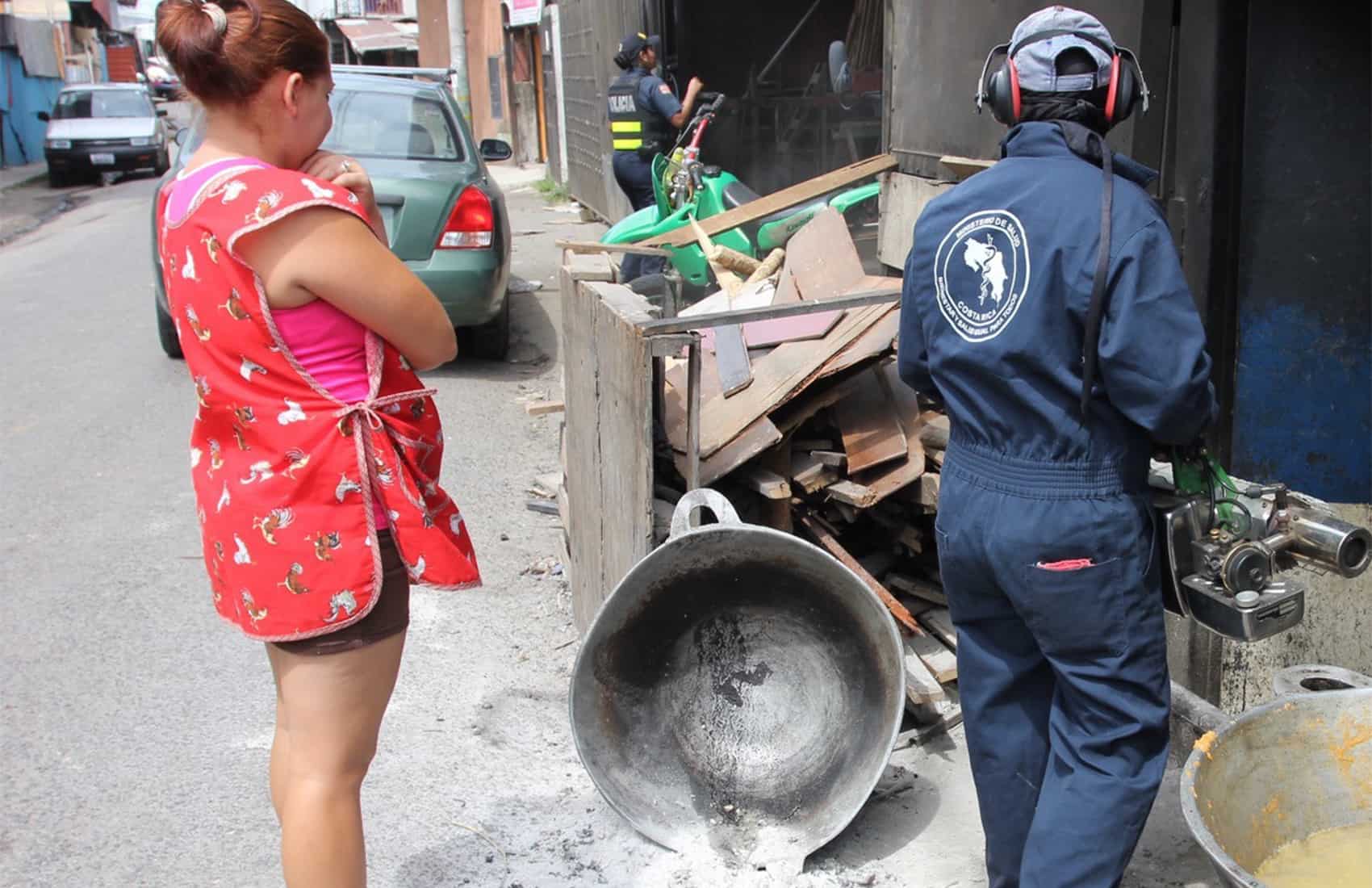The spread of mosquito-borne diseases throughout Costa Rica prompted officials to declare a state of emergency Thursday for 31 cantons located in all seven provinces.
The executive decree follows recent confirmation of the first two locally-transmitted cases of Zika virus, as well as a spike in cases of dengue and chikungunya.
The official order will allow public agencies to allocate resources to fight the proliferation of Aedes aegypti and Aedes albopictus mosquitoes, the main carriers of the viruses. It also grants the government permission to take donations from public and private organizations to address the situation.
Health Minister Fernando Llorca in a news release said the order was a preventive measure aimed at “safeguarding the life, health and safety of the population.” The declaration will remain in effect as long as the executive branch deems appropriate, Llorca said.
The 31 cantons included in the emergency decree are:
San José: Central, Santa Ana, Desamparados, Alajuelita, Pérez Zeledón
Alajuela: Central, Atenas, Orotina
Heredia: Sarapiquí
Guanacaste: Liberia, Carrillo, Santa Cruz, Nicoya, Cañas, La Cruz, Abangares
Puntarenas: Central, Esparza, Montes de Oro, Garabito, Parrita, Quepos, Golfito, Osa, Corredores
Limón: Central, Pococí, Guácimo, Siquirres, Matina.
Cartago: Turrialba
Llorca called on the population to help by eliminating all objects from their homes that can serve as breeding sites for mosquitoes.
Costa Rican authorities have recorded just four cases of Zika, but two of the patients contracted the virus abroad. The two locally-transmitted cases occurred at Sámara, Guanacaste. Both of them are women, the first age 24, with 38 weeks of pregnancy, and the other, 32, who lives in a nearby community.
A third, likely locally-transmitted case was documented by U.S. authorities in January, in a U.S. man who had vacationed in Nosara, Guanacaste with his family in December. Costa Rican authorities are not including that case in their official tally.
Dengue and chikungunya cases during the first five weeks of this year jumped more than 600 percent compared to the same period last year.
Data from the Health Ministry show that 3,253 people here were diagnosed with dengue during that period, while another 850 tested positive for chikungunya.
Dengue is now present in 90 percent of the country’s cantons, while chikungunya is present in more than half.






